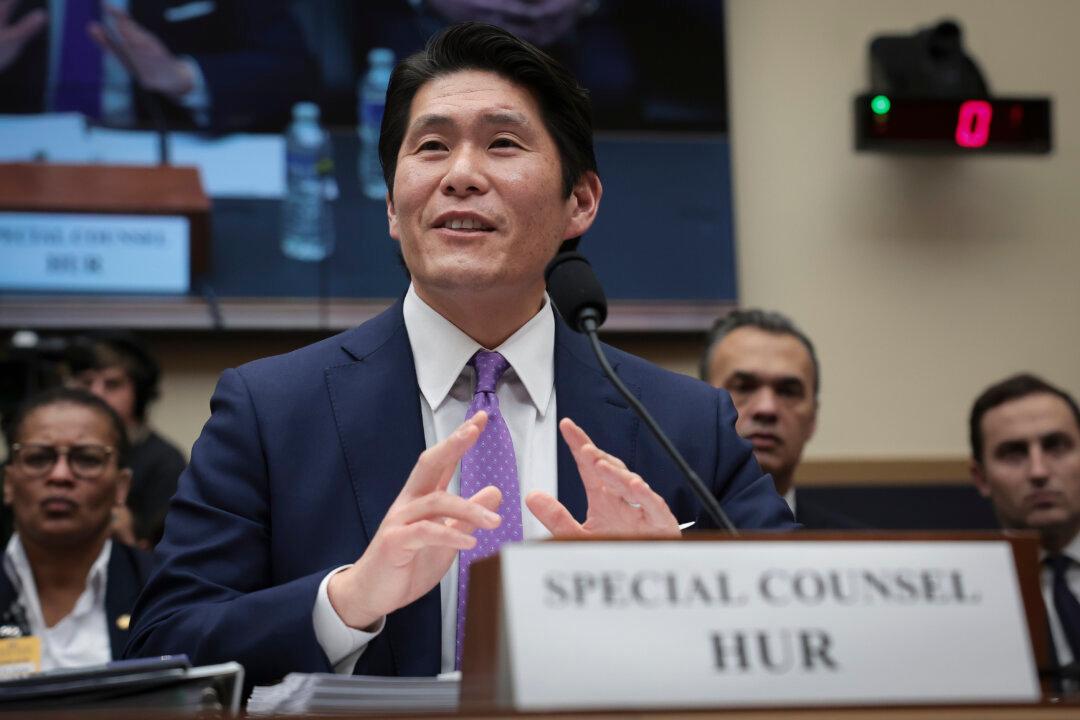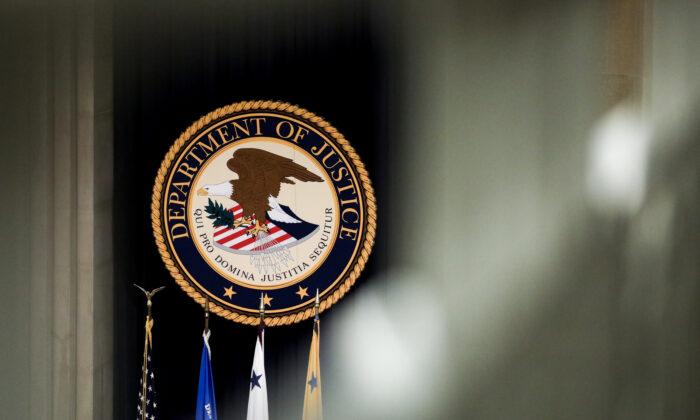Rep. Jim Banks (R-Ind.) announced that he’s proposing legislation to defund National Public Radio (NPR) after a series of revelations appeared to confirm the news organization’s devotion to progressive groupthink.
“Congress shouldn’t be paying pro-censorship leftist activists,” he posted on X, to which Tesla and X CEO Elon Musk responded in support by replying, “Great.”
The move comes in the wake of Uri Berliner’s resignation from NPR as a senior business editor after exposing its activist agenda in an opinion piece for The Free Press. Mr. Banks explained his reasons for proposing the legislation in an opinion piece he published on Fox News.
“National Public Radio (NPR) has 87 percent registered Democrats and zero registered Republicans working in its Washington, D.C. newsroom, and they’ve been preaching to the choir,” he said. “Over two-thirds of NPR listeners are liberals and barely more than one out of every ten leans conservative. But the U.S. taxpayers—who are sending NPR nearly $100 million dollars a year in federal funding—i.e. the American people—lean conservative.”
It’s not that NPR isn’t attempting to reflect the conservative voice as much as that it “despises Republicans and their values,” he said.
“NPR has been a liberal propaganda machine for years,” he added.
Berliner’s View
In Mr. Berliner’s resignation statement posted on X, he said he didn’t support the call for defunding NPR.“I respect the integrity of my colleagues and wish for NPR to thrive and do important journalism,” he said. “But I cannot work in a newsroom where I am disparaged by a new CEO whose divisive views confirm the very problems at NPR I cite in my Free Press essay.”
Mr. Berliner admitted in The Free Press article that the NPR of today, as opposed to the one he started working at 25 years ago, reflects “the distilled worldview of a very small segment of the U.S. population.”
“An open-minded spirit no longer exists within NPR, and now, predictably, we don’t have an audience that reflects America,” he said. “That wouldn’t be a problem for an openly polemical news outlet serving a niche audience. But for NPR, which purports to consider all things, it’s devastating both for its journalism and its business model.”
Mr. Berliner cited NPR’s promotion of the Russia collusion conspiracy hoax against President Donald Trump, its turning a blind eye to the Hunter Biden laptop report, its refusal to acknowledge the Wuhan lab leak theory as the likely source of COVID-19, and its emphasis on “bizarre” stories about alleged systematic racism.
NPR began to avoid language that it perceived as “racially problematic” and “alarmingly divisive,” he said, citing as an example a story about bird names being racist. NPR’s former CEO John Lansing made diversity, equity, and inclusion policies the new “North Star,” Mr. Berliner said, at the expense of “viewpoint diversity.”
His critique reverberated throughout the media landscape, confirming for some what they had already believed while sparking indignation among NPR supporters.
‘Divisive Views’ Surface
The debate brought NPR’s newly seated CEO Katherine Maher into the limelight. Mr. Berliner named her as a potential candidate for reforming NPR.
“A few weeks ago, NPR welcomed a new CEO, Katherine Maher, who’s been a leader in tech,“ he wrote in The Free Press. ”She doesn’t have a news background, which could be an asset given where things stand. I'll be rooting for her. It’s a tough job. Her first rule could be simple enough: don’t tell people how to think. It could even be the new North Star.”
However, Ms. Maher instead went on the defense.
“Questioning whether our people are serving our mission with integrity, based on little more than the recognition of their identity, is profoundly disrespectful, hurtful, and demeaning,” Ms. Maher said. Since her statement on Mr. Berliner’s piece, conservative investigative journalists such as Christopher Rufo have retrieved and highlighted Ms. Maher’s old social media posts and interviews that reveal her support for Marxist ideologies and censorship.
His most recent post shows Ms. Maher, as a former CEO of Wikimedia, in a 360 Open Summit discussion in 2021 stating, “The number one challenge here that we see is of course the First Amendment in the United States,” which she called a “fairly robust protection of rights.” She added that the protection makes it “tricky” to regulate where information comes from.
She continued to say that Wikimedia “took an active approach to disinformation and misinformation” about COVID-19 and the 2020 election to “identify threats.”
Mr. Rufo called for her resignation.
“NPR has hired a left-wing activist who openly endorses censoring, deplatforming, and punching political opponents,” Mr. Rufo said on X. “She considers the First Amendment the ‘number one challenge’ to controlling ‘bad information.’ The American people should not be paying for this.”
David Folkenflik—an NPR media correspondent who reported on Mr. Berliner’s piece and subsequent suspension—said the news organization is “grappling” with “the fallout” from Mr. Berliner’s statements. “It angered many of his colleagues, led NPR leaders to announce monthly internal reviews of the network’s coverage, and gave fresh ammunition to conservative and partisan Republican critics of NPR, including former President Donald Trump,” Mr. Folkenflik said.
Mr. Folkenflik reported that Mr. Berliner’s suspension letter said that he “failed to secure its approval for outside work for other news outlets,” which is required, and said it was Mr. Berliner’s “final warning.”
Mr. Folkenflik later reported that in an interview, Mr. Berliner said the social media posts “demonstrated Maher was all but incapable of being the person best poised to direct the organization.”
“We’re looking for a leader right now who’s going to be unifying and bring more people into the tent and have a broader perspective on, sort of, what America is all about,” Mr. Berliner told him. “And this seems to be the opposite of that.”
‘State-Affiliated Media’
In 2023, Mr. Musk labeled NPR as “state-affiliated media” on X, which prompted NPR to leave the social media platform and defend itself.“NPR operates independently of the U.S. government,” the news organization said. “And while federal money is important to the overall public media system, NPR gets less than 1% of its annual budget, on average, from federal sources.”
Howard Husock, a senior fellow in Domestic Policy Studies at the American Enterprise Institute—a Washington-based public policy think tank—said in an opinion piece in The Hill that although it’s inaccurate to categorize NPR as a government mouthpiece, it’s “misleading” for NPR to say it only gets 1 percent of its funding from the federal government. In his article, he outlined how NPR’s funding works as set up by the 1967 Public Broadcasting Act.
“The reality is more complex—and should raise questions for those who care about the future of ‘public media,’” he said. “NPR may receive little direct federal funding, but a good deal of its budget comprises federal funds that flow to it indirectly by federal law.”
Under the act, he said funds are allocated to the Corporation for Public Broadcasting, a nongovernmental agency.
“That corporation, in turn, can choose to support original programming produced by public television or public radio—but, by law, must direct much of its $445 million funding (scheduled to top $500 million next fiscal year) to local public television and public radio stations across the country, via so-called ‘community service grants,’” he said. Local stations must pay for NPR’s content, and that’s where it gets complicated, he said.
“Indeed, in its consolidated financial statement for 2021, NPR reported $90 million in revenue from ‘contracts from customers,’ a significant portion of its $279 million and much more than 1 percent,” he reported. 






